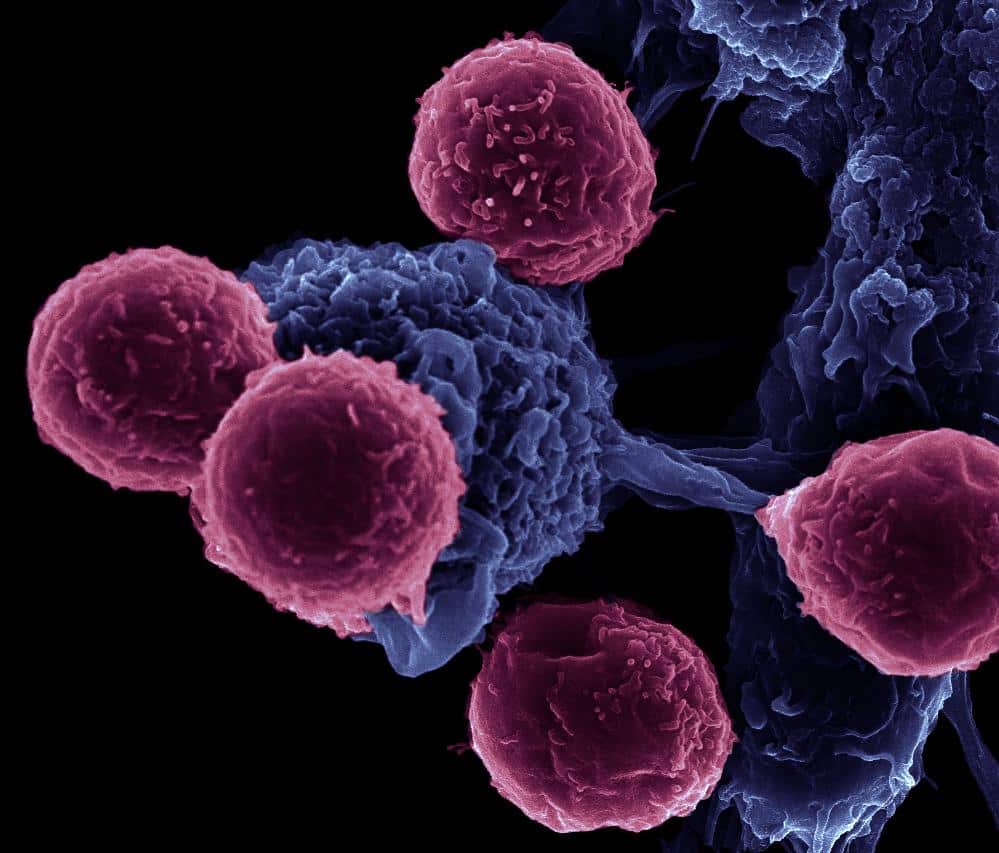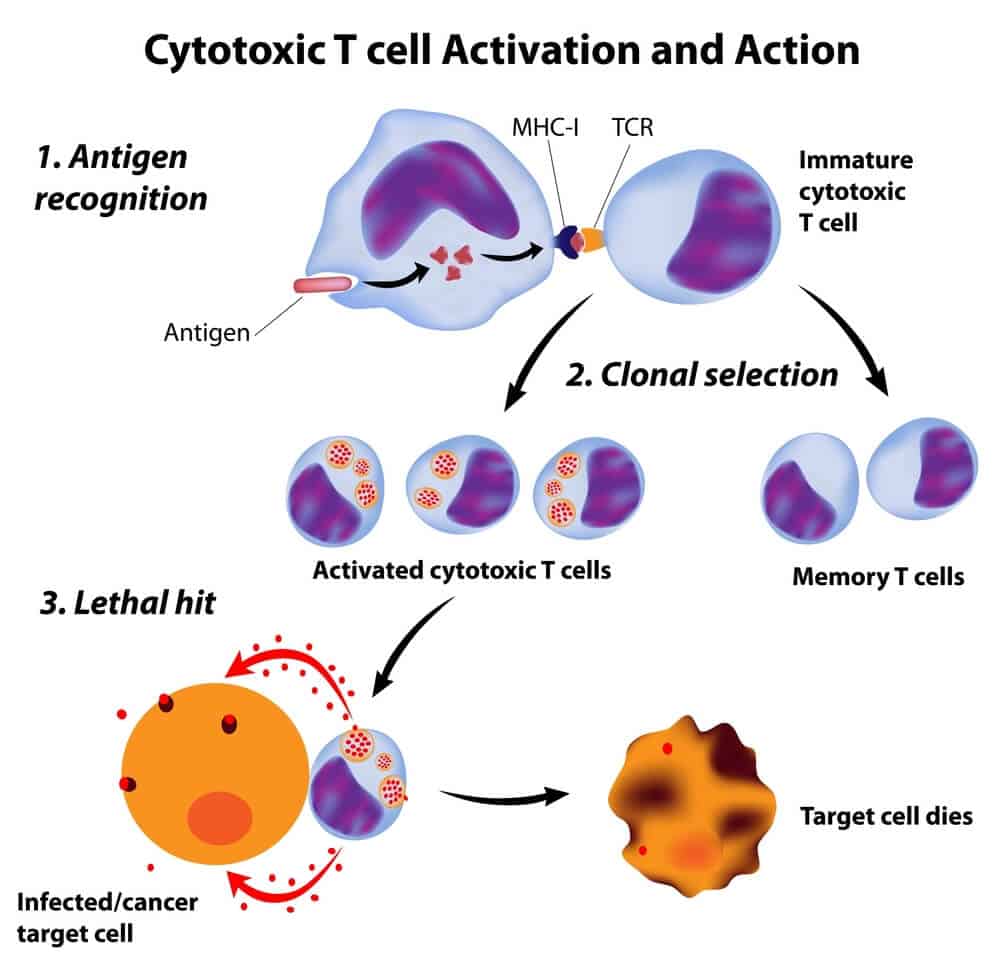Researchers Release the Brake on the Immune System
IκB-kinase β (IKKβ) is a central element of the canonical NF-κB signaling pathway that mediates the development and activation of immune cells.
Regulatory T cells (Tregs) prevent autoimmunity but limit antitumor immunity. Killer T cells are a powerful weapon of the immune system. Following a viral infection, for instance, they swarm out in huge numbers and destroy all of the infected body cells.
Their destructive power is also directed towards cancer cells – at least in principle. Many tumors have actually developed mechanisms that allow them to outmaneuver this defensive weapon. To do this, abuse the so-called regulatory T cells, for example. These are also part of the immune system, but fulfill an opposite function there: they suppress the immune response and thus prevent killer T cells from attacking healthy tissue in the body.
Tumors exploit this by pretending to belong to the body’s own tissue. They can thus be protected to a certain degree by the regulatory T cells. “We have now found a way to kill off the regulatory T cells,” explains Christoph Heuser, a doctoral candidate at the Institute of Experimental Immunology at the University of Bonn. “We were thus able to significantly increase the impact of the killer T cells.
”The team have now been able to remove the natural “brakes” in the immune defense mechanism, which normally prevent an excessive immune response.
The IKKß inhibitor has long been known to be a immunostimulant – a protein that promotes the activation of immune cells – and responsible for not activating them when they are needed.
So the team used a pharmaceutical ingredient mixed with IKKβ in a test tube, to try and block it, and subsequently kill off the regulatory T cells, leaving the killer T cells space to survive and breed.
“Nevertheless, complete healing cannot be achieved solely by inhibiting IKKß,” relativized Prof. Christian Kurts, Director of the Institute of Experimental Immunology at the University of Bonn. “By combining with other immunological active pharmaceutical ingredients, it may, however, be possible to stimulate the immune system to more effectively combat the cancer.”
The regulatory T cells are actually only one element among many others with which the body keeps its immune cells in check. Experts also refer to these braking mechanisms as “immunological checkpoints”. In recent years, the researchers have succeeded in releasing these brakes using suitable inhibiting substances (the “checkpoint inhibitors”). “This approach has already revolutionized the treatment of cancer,” says Kurts.































